Tunisian President Beji Caid Essebsi declared a state of emergency on Tuesday after an explosion struck a bus carrying members of the presidential guard in the country's capital, killing at least 12 people and injuring more than a dozen others
The blast occurred on Mohamed V Avenue in the center of the capital, Tunis. Security and presidential sources said the explosion was a “terrorist attack,” before adding that it was unclear whether it was caused by a bomb or rocket fired at the bus.
On Wednesday, Hichem Gharbi, a presidential security official, told local Shems FM radio, "According to the preliminary details, the attacker was wearing a bag on his back. He had on a coat and was wearing headphones. He blew himself up just getting into the door of the bus with military explosives."
Essebsi said Tunisia would enforce a curfew between 9 p.m. and 5 a.m., stating that the country was "in a state of war against terrorism."
"We will continue with this war with all the people and ammunition that we have," he said. "Victory will be on the side of Tunisia."
No one immediately claimed responsibility for the attack against the presidential guard, an elite security force that protects only the president. However, the Islamic State in Iraq and the Levant (ISIL) claimed two major attacks earlier this year in the country.
At least 11 killed, 14 injured on military bus in #Tunis, according to #Tunisia state TV
STILLs from @Tunivisions pic.twitter.com/EKIxRB5bib
— SaadAbedine (@SaadAbedine) November 24, 2015
Police fanned out throughout central Tunis after Tuesday’s explosion, and ambulances rushed to the scene, evacuating wounded and dead. Prime Minister Habib Essid and Interior Minister Najem Gharsalli visited the scene of the attack after it was cordoned off by police.
Witness Bassem Trifi, a human rights lawyer, said the explosion hit the driver's side of the bus, describing a “catastrophic spectacle.”
"I saw at least five corpses on the ground," he told The Associated Press. "This was not an ordinary explosion."
Emir Sfaxi, another witness and activist, told Al Jazeera “there is a lot of confusion” and that city residents are “scared.”
“There are traffic jams as everyone is trying to get home quickly,” he added.
The attack comes 10 days after authorities increased the security level in the capital and deployed security forces in unusually high numbers.
Earlier this month, Tunisian authorities announced the dismantling of a cell it said had planned attacks at police stations and hotels in the seaside city of Sousse, about 95 miles southeast of Tunis.
Fighting armed groups has become a major challenge for Tunisia, the small North African country that was hailed as a blueprint for democratic change in the region after an uprising in 2011 ousted autocrat Zine Abidine Ben Ali.
Tunisia has had free elections and is operating under a new constitution and a broad political consensus that has allowed secular and Islamist parties to overcome a crisis that threatens to overturn their young democracy.
But several thousand Tunisians have also left to fight in Syria, Iraq and Libya with ISIL and other armed groups, and some have threatened to carry out attacks at home.
A luxury beach hotel in Sousse was hit by an attack last June that left 38 people dead. In March, an attack at Tunisia's famed Bardo museum near the capital killed 22 people. ISIL claimed responsibility for both attacks.
The army has also been fighting against another armed group in the mountains near the Algerian border. Rebels have hit checkpoints and patrols in rural areas in the past.
Al Jazeera and wire services
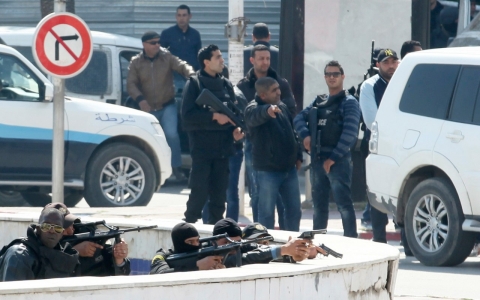
Analysis: Fragile new democracy has been loath to pass security laws that could curb hard-won political liberties
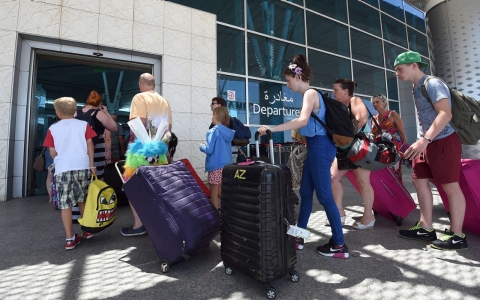
Residents in Tunisia’s most popular resort town say attack will be a deathblow for the country’s tourism industry
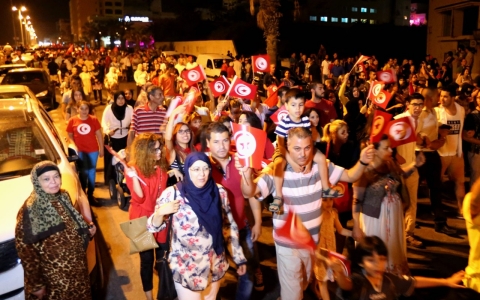
With increasing domestic turbulence, top contributor of foreign fighters to Syria struggles to control alienated youth
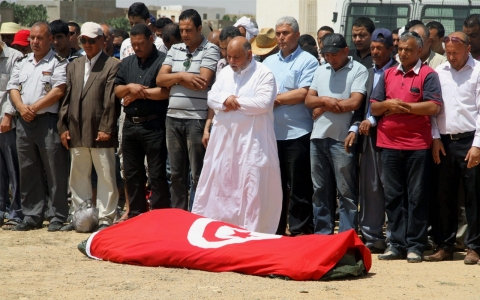
In underdeveloped interior regions, lack of progress confounds residents four years after political upheaval
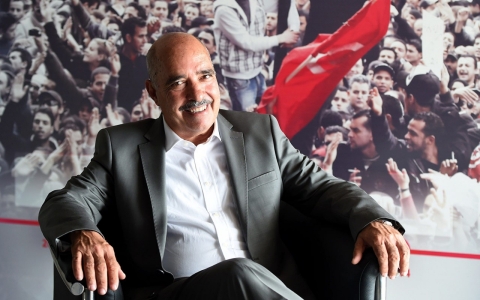
How the National Dialogue Quartet brokered the region’s first democratic transition since the Arab Spring






Error
Sorry, your comment was not saved due to a technical problem. Please try again later or using a different browser.